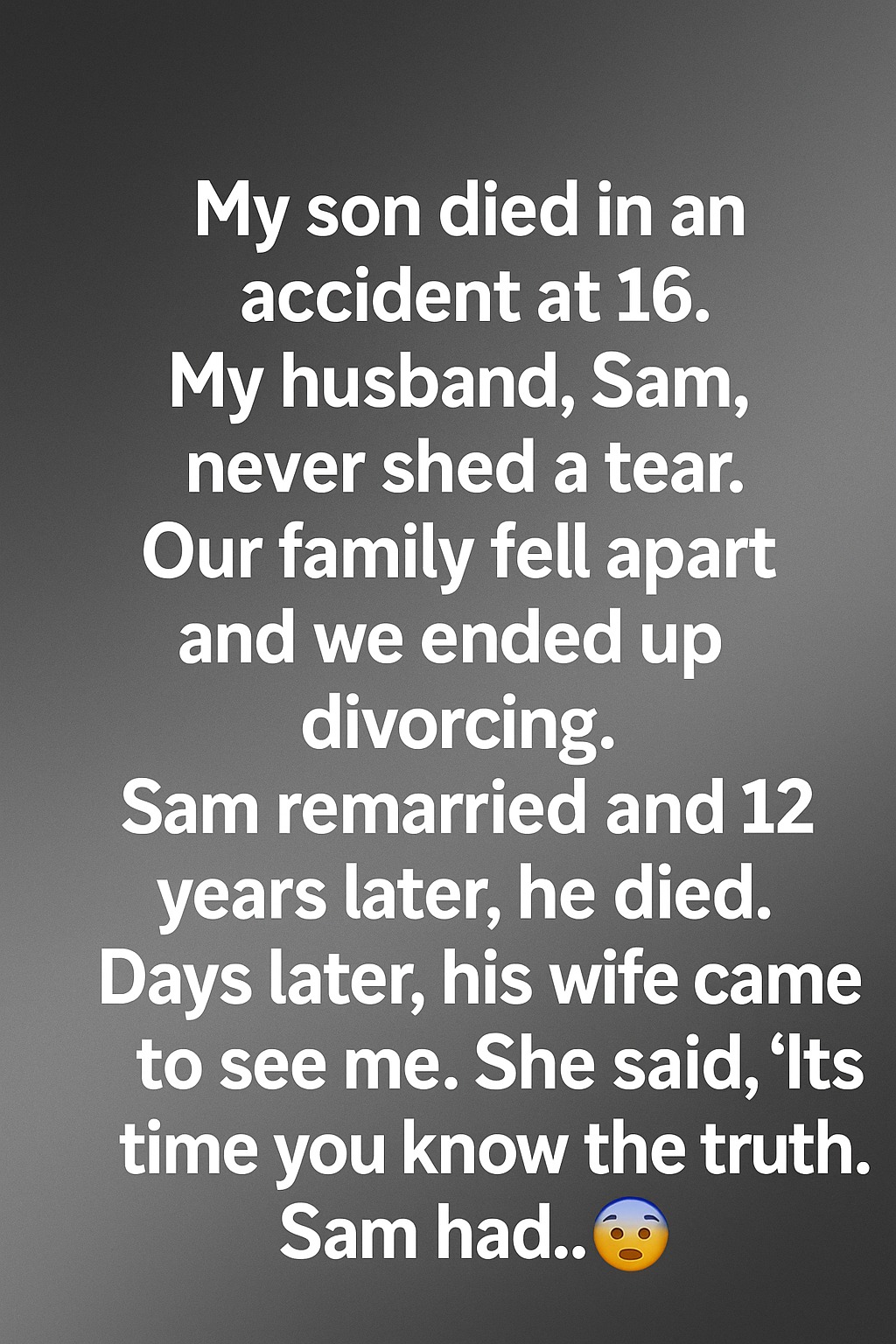Grief has a way of tearing families apart, and mine was no exception. When our 16-year-old son died in a tragic accident, I expected my husband, Sam, and I to lean on each other. Instead, I wept alone. Sam didn’t shed a single tear— not at the hospital, not during the funeral, not even in the silence of our home where our boy’s laughter once lived. His quiet strength felt like cold indifference, and while I fell apart, he buried himself in work. The distance between us grew until our marriage collapsed under the weight of unspoken sorrow.
Years passed, and life carried us down different paths. I moved away, trying to piece myself back together, while Sam remarried and built a new life. Then, twelve years after our divorce, Sam died suddenly. I thought my connection to him had ended—until his new wife appeared at my door after the funeral. Her voice trembled as she told me there was something I had to know, something Sam never shared with anyone.
She revealed that Sam had grieved in silence, but not in the way I imagined. The night our son died, he drove to the lake they used to visit together. Night after night, for years, he returned there—leaving flowers, speaking to our boy, and pouring out his pain where no one could hear. He had believed that if he held his tears back in front of me, he could be the strong one, the anchor I could lean on. But in truth, the burden consumed him, and his love for both of us was woven into those hidden rituals.
That evening, I went to the lake myself. Under a tree, I found a wooden box filled with letters—one for every birthday our son never lived to see. Reading his words, I finally understood the truth I had missed for so long: love doesn’t always look the way we expect. Sometimes it hides in silence, in private rituals, and in the quiet strength of someone who carries the pain alone, believing it’s the only way to protect the ones they love.
